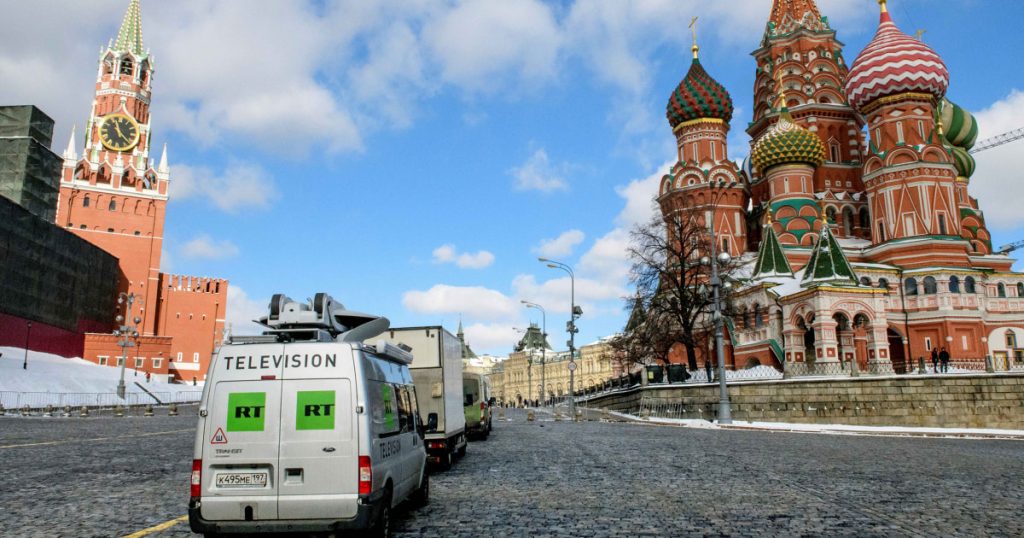The Biden administration has accused Russia’s global TV network RT of carrying out covert information warfare operations around the world and serving as an arm of Moscow’s spy agencies. They specifically mentioned that RT had raised funds to buy weapons for Russian forces involved in the war against Ukraine. U.S. officials cited declassified intelligence to justify the new sanctions against Russian state media and the diplomatic effort to inform foreign partners about RT’s activities.
Secretary of State Antony Blinken emphasized the importance of shining a light on Russia’s propaganda and disinformation efforts, exposing their covert intelligence capabilities and efforts to hide the truth. The administration has been focused on countering Russia’s aggressive campaign to shape politics and sow divisions in America and around the world. The State Department’s Global Engagement Center Coordinator, James Rubin, described RT as being more than just a state-funded media outlet, but as a fully-fledged member of the Russian government’s intelligence apparatus, particularly in relation to the war in Ukraine.
According to officials, RT now has a cyberintelligence unit embedded within the organization with connections to Russian spy services. The outlet has allegedly used a crowdfunding platform to secure weaponry and other support for Russian forces in Ukraine, including sniper rifles, body armor, night-vision goggles, drones, radio gear, and diesel generators. The State Department also noted that some of the equipment came from China. Russia has been disseminating information through proxy media outlets and recruiting social media personalities to hide its involvement, helping to undercut international support for Ukraine with propaganda and disinformation.
In various regions, RT has been accused of engaging in covert operations to promote Russia’s objectives. In Africa, RT is suspected of operating an online platform called “African Stream,” while in Germany, they reportedly run a Berlin-based English-language site known as “Red.” Similarly, in France, RT allegedly employed a journalist in Paris for influence projects aimed at a French-speaking audience. The U.S. has also accused Russia of trying to destabilize the government of Argentina and escalate tensions between Argentina and its neighbors.
In response to these activities, the Biden administration is imposing sanctions on the state-funded broadcaster, TV-Novosti, which oversees RT, as well as another state media company, Rossiya Segodnya, and its director Dmitry Kiselyov. The state media groups have been accused of planning to foment unrest in Moldova and interfere in the country’s upcoming presidential election. Additionally, Russian state-funded media has been targeted for allegedly funneling money into Moldova under the guise of humanitarian aid to influence the country’s elections through buying votes.
Russia has denied running information operations to interfere in America’s elections or the politics of other countries. The Russian embassy in Washington did not immediately respond to the accusations made by the Biden administration. The efforts by the U.S. to expose and counter Russia’s covert information warfare operations through RT and other state-funded media highlight the ongoing tension between the two countries and the broader global implications of Russia’s alleged interference in various regions.












